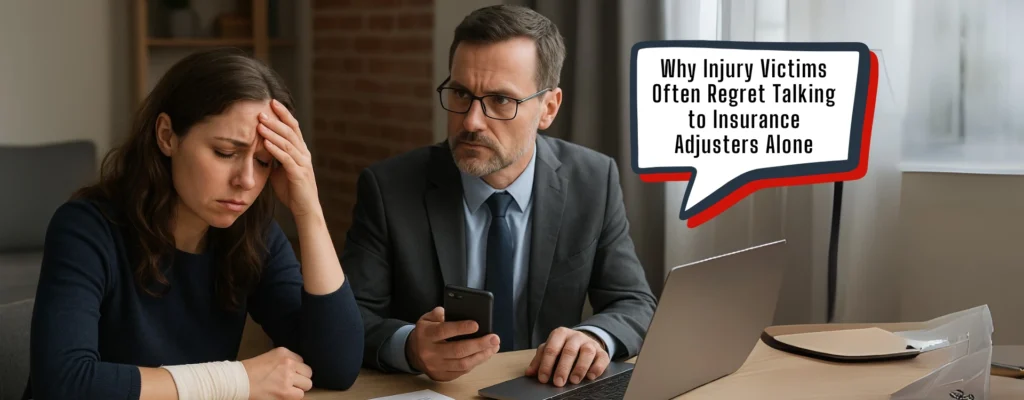Why Injury Victims Often Regret Talking to Insurance Adjusters Alone

You feel shaken, your phone keeps buzzing, and an insurance adjuster says a “quick chat” will speed things up. Do not agree until you understand what you give away. Adjusters protect the carrier’s bottom line, not your recovery.
Do you need compassionate support and effective representation?
No fees until we win. Available 24/7.
Adjusters Act Fast — and Numbers Prove It
The California Department of Insurance fields thousands of complaints each year over delays and low settlements. Carriers know early conversations shape the final payout. Nationally, crash deaths still top 39,000 a year, according to the National Highway Traffic Safety Administration’s 2024 estimate, even after a 3.8 percent decline from 2023. Those deaths translate into millions of injury claims, so adjusters move quickly to limit costs.
Talking to Insurance Alone Early Can Shrink Your Settlement
An adjuster records every word and often asks you to sign a medical release spanning your entire history. A casual “I’m doing okay” can later justify slashing compensation for surgeries you have not discovered yet. California’s comparative-fault rules mean any hint that you share blame directly reduces your award.
Hit-and-Run Claims Raise the Stakes
California Vehicle Code § 20001 makes fleeing an injury crash a felony punishable by up to six years in prison and a $10,000 fine. If police never catch the driver, your own Uninsured/Underinsured Motorist (UM/UIM) coverage can still pay medical bills, lost wages, and pain. A claim insurance adjuster may downplay those benefits or allege late notice, so you need guidance before you speak.
Evidence Disappears, Professionals Lock It Down
Accident reconstruction specialists pull data from tire marks, video, and the vehicles’ Event Data Recorders (EDRs), which log speed, braking, and steering in the final seconds before impact. Adjusters rarely arrange this level of investigation unless you demand it. By talking to insurance adjusters alone and doing this first thing, you may give them a narrative that ignores critical evidence.
Medical Bills Outpace First Offers

California traffic fatalities fell nearly 11 percent from 2022 to 2023, dropping from 4,539 to 4,061, yet serious injuries remain high and costly. Initial settlement checks seldom cover future surgeries, physical therapy, or mobility aids. Once you sign a release, you cannot reopen the claim when hidden injuries surface.
Financial Pressure Is Real — But Help Exists
Mounting expenses tempt many victims to accept fast money. Remember that certain nonprofit organizations and government programs provide temporary aid for rent, utilities, or medical co-pays — resources that let you hold out for the compensation you deserve. Ask a lawyer or social worker to point you toward these programs before you sign anything.
Subrogation Can Blindside You
After paying your medical bills, your insurer may pursue subrogation, stepping into your shoes to recover its payout from the at-fault party. Proper handling keeps your net recovery intact, but a poorly worded statement can undermine the process and leave you covering the gap.
Why You Need a Buffer Between You and the Adjuster
Two or three sentences of context help underscore the weight of your first call. Adjusters settle claims for a living, and every tactic — from friendly chatter to recorded statements — aims to save their company money. Working with a personal injury attorney or qualified advocate flips the leverage so your health, finances, and peace of mind come first.
- Every word becomes evidence. Talking to insurance adjusters alone is risky. Recorded statements can haunt you in court; misphrased answers cost real money.
- Medical releases reach far back. Adjusters comb old records to argue that your pain predates the crash.
- Quick cash trades away future rights. Accepting an early check bars you from claiming later complications.
- Professional investigators uncover hidden proof. EDR downloads and scene scans strengthen your case.
- Alternative aid eases the wait. Grants, state programs, and charitable funds cover essentials while your claim matures.
Road to Recovery, Not Regret
Decline on-the-spot interviews, refuse broad releases, and place an experienced advocate between you and the claim insurance adjuster. You protect critical evidence, secure ongoing medical care, and give yourself time to explore financial assistance. In short, you replace pressure with protection and turn a risky phone call into the first step toward full and fair compensation.
Do you need compassionate support and effective representation?
No fees until we win. Available 24/7.




